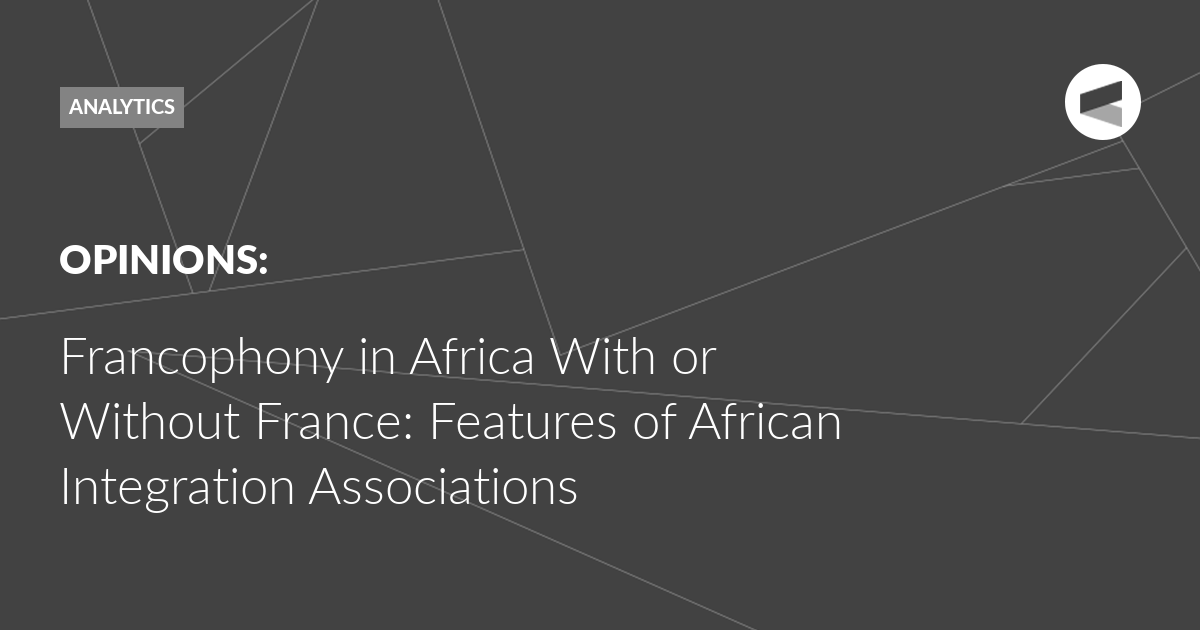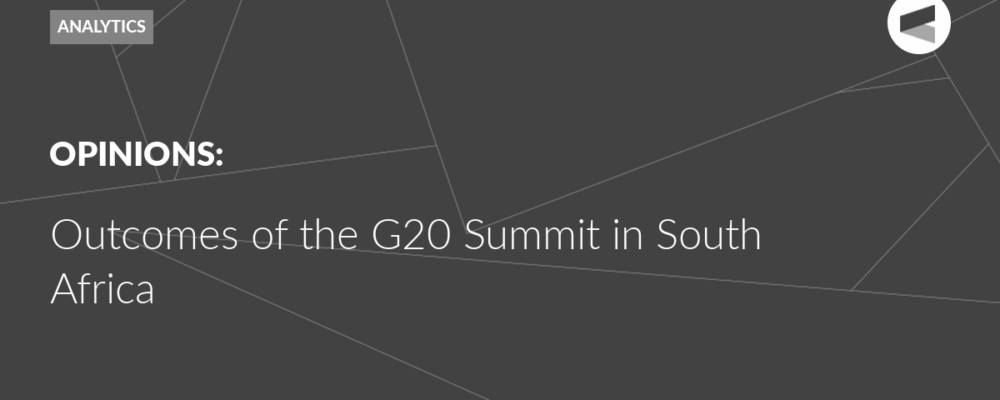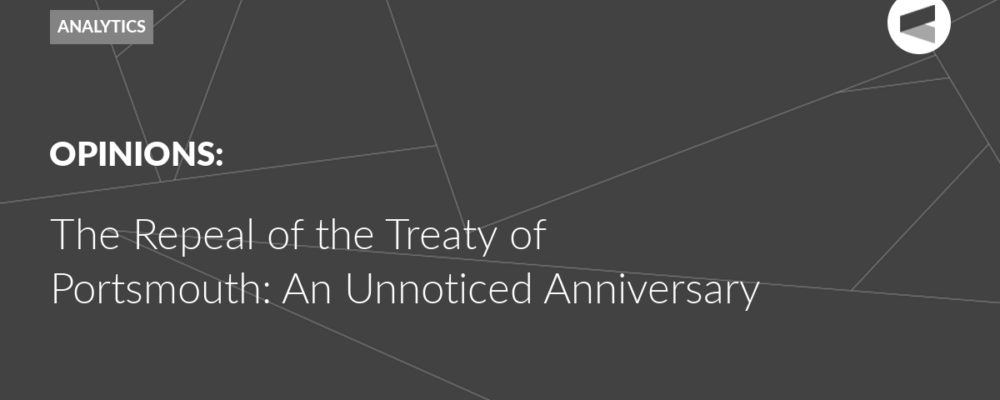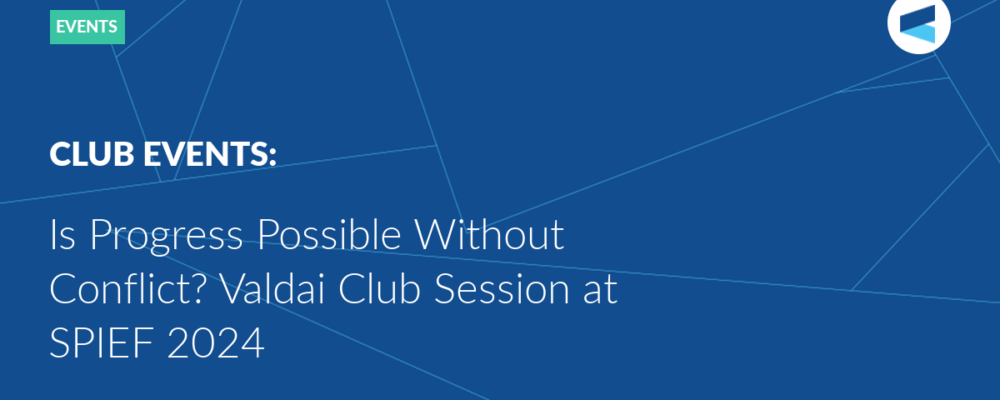Why are the French-speaking countries of Africa uniting faster?
The formation of modern African countries was influenced by the France-Afrique system, which France created in the second half of the 20th century and used for more than 40 years. In the 1950s, for President Charles de Gaulle, policy on the African continent was part of the country’s foreign policy development within the framework of the concept of the greatness of France (grandeur de la France). At the same time, it was difficult for African countries at that time to overcome the influence of the former metropolis and become unique players in international life, despite the grandiose results of 1960. Therefore, for a long time, the created system was a connecting and largely interdependent link between France and a number of African countries.
The France-Afrique system consisted of many elements, including unifying ones. These include:
-
a common language and its manifestations in culture;
-
the economy, where a striking example was the creation of a prototype of the West African Economic and Monetary Union (Union économique et monétaire ouest-africaine, UEMOA);
-
centralized political influence and military regulation, which, with varying degrees of severity, calmed more than united, but nevertheless was an important element of the system.
All instruments were used in symbiosis: formal and informal connections, and hard and soft methods of influence. On the one hand, the neo-metropolis and neo-colonies were united by a separate Ministry and cross-sectoral agreements, and, on the other hand, by the International Organisation of Francophonie and mixed families. It was this synergy that allowed the France-Afrique system to exist on the continent throughout the second half of the 20th century and produce long-lasting results that are still evident today.
But the status quo ante bellum was short-lived by historical standards. The geopolitical changes of the late 20th – early 21st centuries changed the emphasis and caused an increase in the role of Eastern European states in international organisations and in the world system as a whole, which ceased to be bipolar. This reduced the importance of African countries in the balance of power. The “globality” of Europe and France became more Eurasian than intercontinental and African in the early 2000s. The decline in attention and the reduction in the number of regulatory instruments led to the weakening of Franco-African cooperation under French presidents Chirac, Sarkozy and Hollande. Within France, this resulted in harsh criticism of the system, expressed in the contemptuous neologism “Françafrique” and its argot interpretations, and also raised a wave of “solving crimes” of varying degrees of age. In African countries, this gradually led to a certain dichotomy: on the one hand, the growth of self-awareness and endless accusations against the French for a long and painful period of dependence, and, on the other, the gradual discrediting of African politicians for speculating on the “postcolonial theme” and the lack of their own results in the economy and politics. However, the open cancellation of Africa’s French heritage has unleashed a “hidden war” against France and increased the degree of cohesion of the Francophone African countries in “friendship against the metropolis.” This has gradually opened a new page in Franco-African interaction.
President Emmanuel Macron’s attempt to relaunch the France-Afrique system in 2017 and create an updated AmbitionAfrica interaction scheme is, among other things, aimed at uniting all parts of the continent – both French and English-speaking. The main components of the scheme correlate with the recent criticism of France-Afrique within France, correcting its mistakes, but also reflecting more strategic elements that are quite universal and can be applied to all countries of the continent.
We are talking about several components of the new scheme at once:
-
the politics of memory are important for all countries of the continent and former metropolises;
-
the unifying and relatively neutral sphere of development – ecology – is also quite universal and is part of the UN agenda for Africa;
-
a very sensitive area – the economy, including the changes of recent years:
The law on the reform of the CFA franc of December 10, 2020 and the creation of the West African currency eco (ECO), now renamed the Franc of the Financial African Community (Franc de la Communauté Financière Africaine (F.CFA);
Agenda of the African Union until 2036: the formation of an economic and monetary union on the continent, using various forms of integration – from a preferential trade zone to a common market.
-
new groups of influence: diaspora, youth, civil society;
-
reliance on the expert community through an advisory body to the president, primarily regarding the Presidential Council for Africa (Conseil Présidentiel pour l’Afrique), which includes representatives of different strata of the elite of the countries themselves;
-
linguistic aspect. By pursuing policies in French, all open events of modern France in Africa (intentionally) are held in English, as if neutralizing the hereditary linguistic boundaries of the continent;
-
“soft power”. With reservations, we can include here the still operating French Institutes, the University Agency of Francophonie and the International Organisation of Francophonie.
Macron’s attempt to play the role of a neutral interlocutor (interlocuteur neutre) throughout Africa is based on a completely understandable and still active French legacy: overcoming the negative past, the tradition of centralizing politics, a single language, and the integration experience within the framework of Francophone associations. This clearly shows the legacy left by France in Africa, which, however, still carries many unresolved issues.
How “French” will the integrated Africa be in the future?
Without leaving behind the Francophone experience of African states and the baggage of interaction within the existing integration associations, African countries are now experiencing a new wave of self-redefinition. The emerging sovereignty of African states and neo-Pan-Africanism are gradually forming two extreme camps. On the one hand, they have a soft understanding of the legacy. On the other, they are moving away from it. The latter primarily refers to disagreements along political, economic and ideological lines, including steps such as:
-
The 2023 statement by Mali, Niger and Burkina Faso on creating their own currency – the Sahel – and replacing it with the eco by 2027;
-
Renaming streets in honour of national heroes within the countries;
-
The withdrawal of Niger and Burkina Faso from the International Organisation of Francophonie in 2025.
Will the African region remain part of FRANCOphonie or will it acquire a new name, closer to AFROphonie? We have already tried to answer this question within the framework of the theory of regimes and overcoming the path effect for both sides: both France and the now Francophone countries. To what has been written above, from today’s perspective, we can add several factors on which the further integration and development of Africa depends, with or without France: how strong will the unifying agenda of African countries be, how unified will the French language be, what forms will the rivalry of new countries on the continent take, and what course will the African countries themselves choose? After all, the legacy post factum is not enough for the legacy per se in determining the further path of development.
The Valdai Discussion Club was established in 2004. It is named after Lake Valdai, which is located close to Veliky Novgorod, where the Club’s first meeting took place.
Please visit the firm link to site






